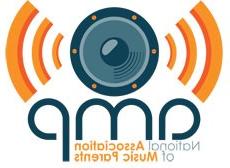Benefits of Music
There are numerous benefits to early participation in music. In fact, there is an entire field of research into the positive impacts that music has on child development. Music Advocacy is a vast and growing field, and we have selected a few resources for you, as you consider your child’s participation in a music program.
We do not advocate that “music makes people smarter.” Nor do we suggest that music can cure any and all societal or personal issues. We also do not suggest that the positive impacts of music are reserved for those who choose to become professional musicians. Instead, music instills values and habits that children carry with them into all aspects of their lives. Active participation in music activates all parts of the brain, acting as a catalyst for stimulated brain activity. Music also provides direct links to math, science, language, history, physical education, and many other subjects in the school curriculum. And finally, the skills, attributes, and abilities that children develop through music are transferrable and applicable to any career field that they may choose.
If you are interested in more music advocacy resources, we encourage you to read:
Top 10 Skills Children Learn from the Arts, by Valerie Strauss
Published in the Washington Post, Jan 23, 2013
- Creativity
- Confidence
- Problem solving
- Perseverance
- Focus
- Non-verbal communication
- The ability to receive constructive feedback
- The ability to work with others
- Dedication
- Accountability
The full article is available at
http://www.tmea.org/assets/pdf/Washinton_Post_2013_Top_10_Skills_Children_Learn_from_the_Arts.pdf
Twelve Benefits of Music Education (Nov 29, 2014)
- Early music training helps develop brain areas involved in language and reasoning.
- There is also a causal link between music and spatial intelligence (the ability to perceive the world accurately and to form mental pictures of things)
- Students of the arts learn to think creatively and to solve problems by imagining various solutions, rejecting outdated rules and assumptions.
- Recent studies show that students who study the arts are more successful on standardized tests such as the SAT.
- A study of the arts provides children with an internal glimpse of other cultures and teaches them to be empathetic towards the people of these cultures.
- Students of music learn craftsmanship as they study how details are put together painstakingly and what constitutes good, as opposed to mediocre, work.
- In music, a mistake is a mistake; the instrument is in tune or not, the notes are well played or not, the entrance is made or not. It is only by much hard work that a successful performance is possible.
- Music study enhances teamwork skills and discipline.
- Music provides children with a means of self-expression.
- Music study develops skills that are necessary in the workplace.
- Music performance teaches young people to conquer fear and to take risks.
- An arts education exposes children to the incomparable.
The full article is available at
http://www.childrensmusicworkshop.com/twelve-benefits-of-music-education/
Additional Advocacy Resources are available from:
- Children’s Music Workshop www.childrensmusicworkshop.com/advocacy/
- The National Association for Music Education http://nafme.org/advocacy/advocacy-resource-center/
- National Association of Music Merchants www.namm.org
- Music for All http://advocacy.musicforall.org/now/
- Texas Music Education Association (Advocacy) www.tmea.org/resources/advocacy/materials





Click here to return to our homepage